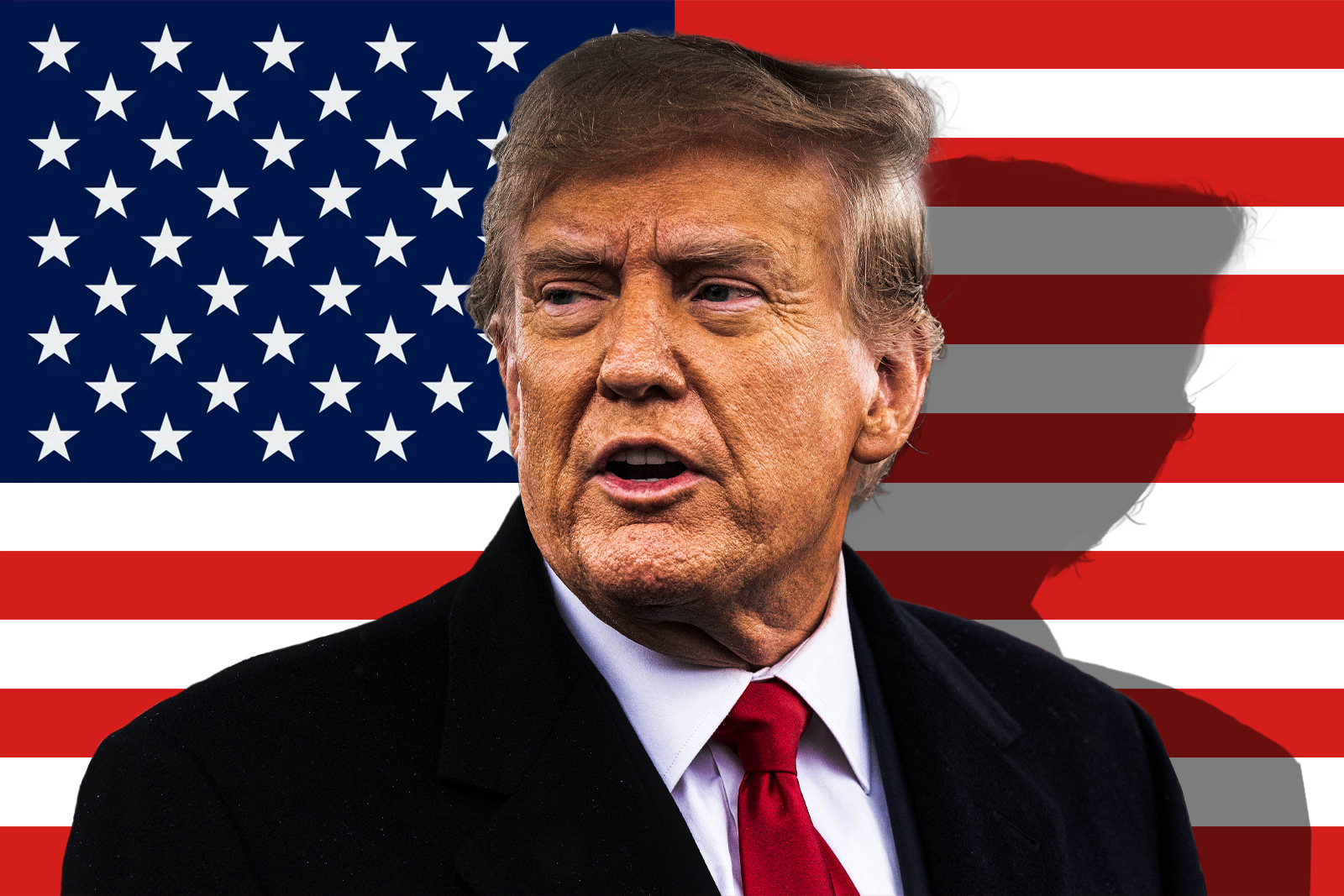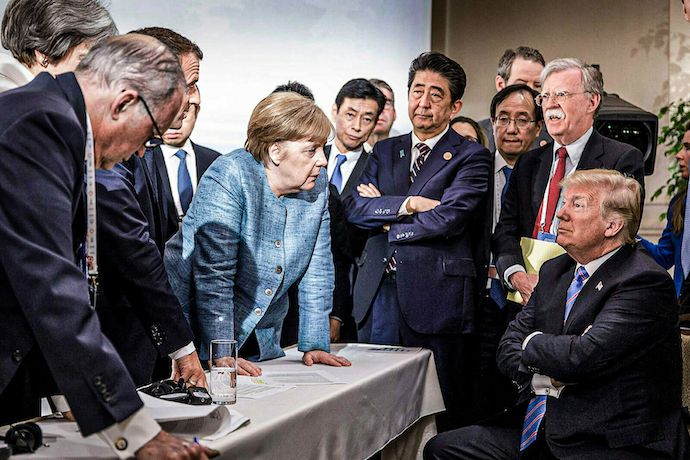
Will the ‘Blob’ be Able to Tame Trump?
Securing the Republican Party nomination has made Donald Trump’s return to the White House a distinct possibility. Growing dissatisfaction among young voters, lack of enthusiasm within the Democratic base, and President Biden’s perceived lack of appeal have left the path seemingly open for Trump’s return.
A second Trump term raises questions about the future trajectory of U.S. foreign policy. Will there be significant policy shifts on support for Ukraine, the ongoing war in Gaza, relations with Iran, and the escalating rivalry with China? While some anticipate a dramatic change in policy due to Trump’s past rhetoric and governing style, the complexity of these crises and the entrenched influence of the Washington establishment suggest that a second Trump term won’t be nearly as disruptive as some fear.
However, what should concern both the Washington establishment, sometimes referred to as “the Blob,” and foreign policy practitioners is Trump’s penchant for vindictiveness. Known to seek retribution, Trump has a long memory of criticism and perceived slights. Trump harbors a schoolboy resentment towards those he believes have not shown him sufficient gratitude or loyalty. Therefore, the focus should be on whether Trump’s return would be marked by vindictiveness rather than reconciliation and collaboration. Trump prioritizes score-settling and rewarding loyalists over addressing the complex global issues and crises that require attention and true leadership, traits that Trump lacks in spades.
Declaring himself Israel’s best friend, Trump often expresses dismay bordering on anti-Semitism that a majority of American Jews voted for Biden in 2020. Claiming to have helped Israeli Prime Minister Benjamin Netanyahu win in 2017 and praising him for his loyal friendship, Trump expressed his resentment that Netanyahu congratulated Biden on his election victory in 2020 considering that an act of disloyalty.
Contrary to complimentary farewell remarks and well wishes, Trump harshly criticized top officials such as Secretary of State Rex Tillerson and Secretary of Defense James Mattis when they left his administration. He also mocked opponents in Congress, including Adam Schiff, Elizabeth Warren, and Kamala Harris, among others. Trump’s ridicule extended to anyone who dared to criticize him including lower-level administration appointees and staffers such as Omarosa Newman and Cassidy Hutchinson. Journalists and public figures have faced similar treatment.

These examples suggest that Trump expects allies and administration appointees to align completely with his views, support his claims, take his side, and refrain from expressing any disagreement or criticism. The potential impact of such personality traits on policy decision-making should be of concern for the establishment and foreign policy practitioners.
Given Trump’s vindictiveness, his focus will inevitably be on other aspects of his job. Domestic issues such as southern border security and pardoning his supporters who stormed the U.S. Capitol on January 6, could be at the forefront of Trump’s second term agenda. Attempts at reconciliation in Washington may take a backseat for a while. Persistent and complex global conflicts would potentially be sidelined until “the Blob” can persuade Trump to dedicate efforts to more pressing global matters. This painstaking process may hinder or slow the decision-making process. However, sharp shifts in U.S. foreign policy may not be feasible.
U.S. foreign policy is deeply institutionalized and involves multiple government agencies. A policy reversal requires planning, time, and coordinated efforts.
Away from President Trump’s self-aggrandizement and his signature rhetoric that he alone can stop wars, including past ones like the American Civil War, and has the power to ‘part the Red Sea,’ his potential comeback has caused unease among NATO members and U.S. allies. However, once the dust settles, the U.S. is likely to resume its essential involvement in addressing pressing crises and promoting its agenda.
When it comes to the war in Gaza, despite expressing resentment against Netanyahu, Trump is expected to continue his strong support for Israel. An anticipated Israeli agreement with Hamas might reduce tension in Gaza but may not lead to a complete cessation of hostilities. Israel’s brutal assault on Gaza could persist alongside increased humanitarian aid and infrastructure reconstruction efforts. The Israeli-Palestinian conflict may experience a temporary calm, but a lasting and practical solution remains elusive.
The war in Ukraine is expected to drag on. Trump, while lacking enthusiasm to continue the current course, will be confronted by the complexity of the war. Without a comprehensive resolution that satisfies all parties involved, the conflict in Ukraine is expected to persist under Trump’s watch, possibly reaching a stalemate. As a precautionary measure in anticipation of Trump’s potential return, the NATO alliance is exploring proposals to secure a long-term $107 billion fund to support Ukraine.
With China, President Biden continued on Trump’s decoupling course. Sino-American strategic competition further escalated toward a collision, resembling a game of chicken. While China has become increasingly aggressive in the South China Sea and has notably been developing its own statecraft to counter the United States on the world stage, the Biden administration has been pushing the envelope on multiple fronts in an attempt to contain China. Apart from Nancy Pelosi’s visit to Taiwan in 2022, which infuriated Beijing, the U.S. provision of advanced arms and military training to Taiwan, along with blocking China’s access to advanced technologies, notably in the semiconductor sector, have further strained America’s relations with China. Surprisingly, despite Trump’s confrontational stance on China, his approach might mitigate damage rather than further worsen relations.
Criticizing his predecessor’s maximum pressure strategy on allies and adversaries alike, Biden pledged a policy of “relentless diplomacy” after taking office in 2021. However, hopes for easing tension with Iran and reviving the 2015 nuclear deal quickly dimmed as Biden continued with Trump’s policy. Concerns grew over Iran’s nuclear ambition under Biden’s watch. As the war escalated in Gaza involving Iran’s proxies, the Biden administration became wary of direct military confrontation with Iran, fearing further destabilization in the Middle East. Considering the ongoing tension with Iran, fears of Trump’s potential return to the White House may appear exaggerated. Trump’s eagerness to construct his image as America’s greatest president could lead him to explore options for a compromise with Iran.
As Biden approaches the end of his first term, conflicts in Ukraine and Gaza, tension with China, and uncertainties with Iran persist without clear resolutions. The global landscape appears less stable now than it was four years ago, with no imminent prospects for peaceful mitigations. Will a second Biden term bring about the peace and stability that has eluded the administration thus far? Or would a second Trump term exacerbate the current challenges?
Amid these uncertainties, policymakers and observers must remain vigilant, recognizing that the dynamics of power and diplomacy can swiftly evolve, shaping the trajectory of global events.
